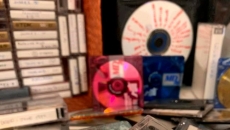“Challenge accepted," they wrote — female Instagram users across the United States, flooding the photo-sharing app with black-and-white images. Together they formed a grid of millions of magazine-style captures of celebrities, spur-of-the-moment selfies and filtered snaps from weddings or other special occasions. The official goal: a show of support for other women.
An accompanying hashtag, #womensupportingwomen, often was the only sign of the campaign's intent, along with friends' Instagram handles to encourage participation. And some users quickly began to wonder: What's the point?
To some observers of social media activism, #challengeaccepted represents a clear example of “slacktivism” — campaigns based on social platforms that require little effort of participants. There’s no donation requested, no volunteer shift required, just a few minutes to post a message or image that people are unlikely to fight over.
They say photo-driven campaigns can become a powerful push for social change. But they feel this latest effort so far lacks a concrete goal.
“Successful selfie protests made what's invisible visible," said Mona Kasra, an assistant professor of digital media design at the University of Virginia. “They are effective when they shift public perception, when they create a counterculture, when they resist, when they claim a place online.”
By Thursday, more than 6 million Instagram posts had used the #challengeaccepted hashtag. Others just included the phrase “challenge accepted” in their post, making it difficult to count total participation.
Some participants praised the posts as a straightforward way for women to support one another — one that comes days after U.S. Rep. Alexandria Ocasio-Cortez’s passionate speech on the House floor calling out sexist culture.
Tara Abrahams joined the millions of women posting under the hashtag after a friend invited her to share. She chose a shot of herself smiling, her dark hair streaming across the square frame. Before posting it, the philanthropic adviser from New York added a caption encouraging people to check their voter registration status and make a plan to vote in November.
“I just kept smiling because I saw these very inspiring women flood my feed,” said Abrahams, who also chairs a non-profit focused on girls' access to education in 11 other countries. “I know that there are real women doing the real work. Instagram can be where the activism begins, but it’s not where it ends.”
Some researchers are encouraged by the debate. They consider it a sign that many Americans' expectations for social media communication have been honed by the ongoing coronavirus pandemic and large demonstrations demanding change in U.S. policing following the deaths of George Floyd and other Black Americans.
Questions about this latest photo challenge also mirror reaction to the #blackoutTuesday push in early June, stemming from an effort within the music industry to halt normal operations for a day.
Then, public attention focused on social media, where users posted all-black images on their Facebook or Instagram accounts as a show of support for the Black Lives Matter movement. Some posters backtracked after activists criticized the action, saying it was drowning out existing material already posted by Black users.
The conversation about #challengeaccepted is further complicated by questions about its origin. Some social media users have tied it to ongoing work to raise awareness of women killed by their male partners in Turkey. But that link is difficult to trace definitively.
An Instagram spokesman said posts in Turkey about violence against women date to the start of July, while the black-and-white esthetic and accompanying #womensupportingwomen hashtag that flooded the photo-sharing app this week first showed up in mid-July among users in Brazil before spreading to the United States.
Stephanie Vie, an associate dean at the University of Hawai’i at Manoa, said tracking the origins and changes in social media campaigns across countries and cultures is a constant struggle for researchers who study memes and other digital communication.
Rather than “slacktivism,” Vie prefers the umbrella term “digital activism” — because, she says, shows of support on social media can indeed be meaningful.
“Would I like #challengeaccepted to have more of an activist bent? Absolutely," Vie said. "Do I want to say people are doing it completely wrong and they shouldn't bother posting? No, because you have to start somewhere.”
Activists who work on women’s rights internationally say they are encouraged by any effort to spotlight the cause. But they suggested this latest push would have more impact if participants went beyond a photo posting — perhaps by encouraging support for an organization working on women's rights.
“It's powerful, but it's also helpful to see an action piece, like what am I fighting for?” said Rosalyn Park, director of the Women’s Human Rights Program. “I would love to see people leverage that trending power and that momentum to really go one step further.”
Yet simply talking about the way digital movements work — or don't work — can be a useful pursuit.
The existence of any meaningful debate about a meme campaign focused on women is encouraging, says Katherine DeLuca, an assistant professor of English and communication at the University of Massachusetts Dartmouth. Participants likely have good intentions, she says, but it’s healthy to consider what else they can do to support a broader goal.
“People having the time to think critically about what they’re circulating in online spaces is a great place for us to be, especially going into an election season,” DeLuca said.
After Abrahams made her initial post, she took things a step further the next day by posting a second image: a black-and-white drawing of Breonna Taylor, a Black woman fatally shot by police in March during a drug investigation. Abrahams included a link to a petition demanding charges against officers involved.
The warrant to search Taylor's home was in connection with a suspect who did not live there and no drugs were found, making her death a regular focus of protesters in the U.S. this year. And with that #challengeaccepted follow-up, Abrahams tried to connect something widespread and unspecific to something that, for her, was focused and essential.
“It's OK to hold space for joy and for fun and for supporting one another,” Abrahams said. “It's OK to have all of those things as long as there's real work.”






